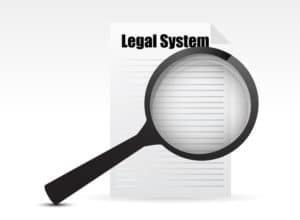The exclusionary rule allows judges to exclude evidence that was taken illegally.
Picture this: you are in your home with friends, having a quiet get-together. You hear a loud knock at the door, and open the door slightly. It’s the police. They ask to come in, saying that they got a noise complaint. You say no, but two officers push past you, and start walking around your house. They open up a drawer in your bedroom and find some pills — and the next thing you know, you’re being arrested for drug possession. What can you do?
The first thing that you should do is call a drug defense lawyer Los Angeles, CA — and exercise your right to remain silent. These are just two of your constitutional rights that protect you from government oppression. Another constitutional right — the right to be free from warrantless searches and seizures — may lead to the evidence taken from your house be suppressed, or excluded, from the case against you.
Under the Fourth Amendment of the United States constitution, law enforcement officers are generally required to have a warrant when conducting searches. There are a few exceptions to the warrant requirement, such as if an item that is clearly contraband is in plain view or if there are exigent circumstances. But as a general rule, if the police want to search your property and you don’t consent to it, they need a warrant.
For a search warrant to be valid, law enforcement must apply for a warrant from a judge, describing with specificity the locations to be searched and the items to be seized. The warrant application must be supported by probable cause that a crime has taken place. If a warrant is issued, the police cannot go beyond the warrant (with a few exceptions).
In the situation described above, the police did not have a warrant to search your home, and there was no emergency that justified them entering it. You also did not give them permission to search it. A skilled drug defense lawyer Los Angeles, CA can use these facts to draft what is known as a motion to suppress.
A motion to suppress is a legal document that asks the court to exclude any evidence that was found through an unlawful search. Because the police violated your constitutional rights, your drug defense lawyer Los Angeles, CA is asking the court to exclude any illegally seized items to be returned to you. This is known as the exclusionary rule: evidence that is obtained as the result of illegal searches or seizures is excluded from evidence.
As an experienced drug defense lawyer Los Angeles, CA can explain, the exclusionary rule doesn’t just apply to what the police initially seized from your home. Assume that based on the pills that the officers seized, the police applied for a warrant to search your financial records and all properties that you own — and found evidence that you were dealing drugs. Under the “fruit of the poisonous tree” doctrine, all evidence obtained as a result of the illegal-seized evidence must be suppressed. In other words, the police wouldn’t have ever learned that you were dealing drugs if they hadn’t illegally searched your home in the first place — so when the evidence from the illegal search is suppressed, all of the other evidence must be as well.
The application of the exclusionary rule will depend on the facts of each case. If you have been charged with a criminal offense, the Chambers Law Firm is here for you. Contact us today at 714-760-4088 or dchambers@clfca.com to schedule a free initial consultation.





